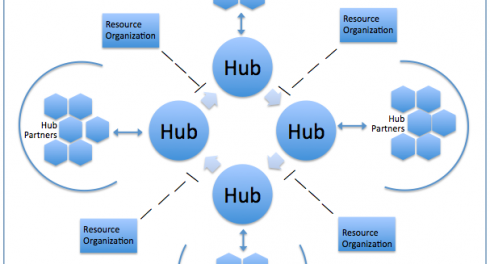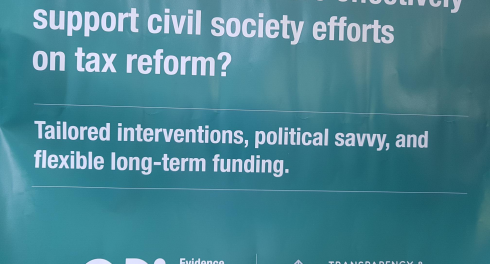Highlights:
- Tax privilege gone mad
- Extracting learnings
- Open but unloved – but not forever
- How much is too much?
- TAI Spotlight: From the power of stories to strengthening the impact of data
In case you missed it…
Tax privilege gone mad
 Photo: Pixabay
Photo: Pixabay
Tax treaties may not make for bedtime reading, but their terms have very real-world consequences. Should developing countries avoid them at all costs? A new paper argues no, but first, they need to estimate the economic consequences of entering into them. Either way, the rules of the game on tax have failed to keep pace with global corporate structures and strategies. As of 1970, American multinationals claimed that under 10 percent of their profits were generated in tax havens; that number is now almost 50 percent as detailed by Wright and Gabriel Zucman. Such tax privileges could be costing the rest of the world as much as $180 billion a year.
How does that play out in particular sectors? Check out Transparency International’s corporate tax tracker to dig into the data on EU banks. For the tech giants (often a target of EU regulators), see Tax Watch UK’s study of their tax payments (or rather non-payments). Time for an update of “tax gap” analysis to better reflect the gamut of avoidance techniques? For more on what it will take for civil society to do such analysis in different countries and on different tax instruments see Will Prichard’s new TAI brief (featured under Spotlight below).
Still in the EU, but turning to a parallel world of financial shenanigans, Shua Kirschenbaum and Nicolas Véron detail a new EU architecture to fight money laundering following a wave of recent scandals. Want incentive to tighten AML checks? Capital One Financial has been fined $100 million over regulatory deficiencies in its AML program.
Talking of banks, past TAI Weeklies have flagged how Southern Sudan politicians have looted state resources with impunity and successfully deposited funds in neighboring countries. Banking on War from The Sentry makes a strong case for supporting reforms in the banking system. (Kudos to the team on the one-page visual overview.)
Will we see progress on enablers of corruption in years ahead? Some accountability for grand promises would help. A number of countries and organizations made commitments at the International Anti-Corruption Conference (IACC) last week. We suspect that Transparency International will create the equivalent of their implementation tracker from the 2016 UK Anti-Corruption Summit and resulting accountability report.
What sticks with us from IACC, beyond any institutional platforms, is the power of individual stories of activists in a dangerous time. For just one example, listen to that of Ana Garrido Ramos, deserved Anti-Corruption Award Winner who was targeted for investigating millions embezzled through public contracts.
Extracting learnings
How to know if a country is getting a good deal? Contract details are a good starting point but knowing how to model the revenue clauses provides real gold. Investment in modelling on oil, gas, and mining is proving its worth, so Maya Forstater and Johnny West ask what might be replicated for other sectors with complex deals, and suggest a fresh approach to building financial modelling capacity to handle most public assets.
It’s always helpful when others sift through scholarship, so you don’t have to. Enjoy an annotated bibliography on transparency, accountability, and participation efforts along the natural resource value chain courtesy of the Brookings Institution and partners.
Essential Listening and Viewing

Ford Foundation’s CEO, Darren Walker and Lisap Jackson from Apple speak on the role of philanthropy and business in working with people to solve the world’s problems. Watch Now!
Open but unloved – but not forever
Lack of access to government data has been one barrier facing civil society in keeping governments accountable. Fumega and Fabrizio Scrollini make a strong case for how online portals can solve this problem and also ensure that citizens are central in the policy development, implementation, and reforms. Pair it with Engine Rooms research findings on how to effectively connect data to inform local policy changes and reforms. (Get more motivation from TAI’s review of dos and don’ts from data funding).
Such readings could get a ready audience in Beijing. TAI met with a delegation from China this past week and compared notes on incentivizing the use of open data portals (such as Shanghai’s). Chinese cities and agencies have been creating their portals, complying with access to information requirements, but are now discovering a familiar problem – build and no one comes. Send us your best examples from around the globe, and we promise to pass them on.
How much is too much?
Collaborating, learning and adapting (CLA)are important practices being used by donors in their work. But when is CLA too much? Monalisa Salib details when its overdone and the risk of ignoring CLA.
Want to build a collaborative global network? Don’t know which steps to flow? Blueprints For Change found success by making sure it was easy and rewarding for people to contribute. Borrow lessons from their experience. Finally, eager to write impactful grantee stories? Start by writing like you talk! Get more tips from Duncan Green and our own The Story Behind the Story report.
Long read of the week
Accountability in Action: The Impact of Monitoring the Implementation of the 2016 Anti-Corruption Summit Commitments by Jameela Raymond
TAI spotlight
Civil Society – Improving Tax and Development Outcomes| TAI
As input for more detailed work to come from TAI, Will Prichard lays out capacity roles and challenges for civil society for effective work on tax issues.
Storytelling to raise awareness | Luminate Group
Myo Zin, Luminate Group documents how the people of Myanmar are using stories to raise awareness on social and legal issues affecting them hence reducing corruption.
Examining Funding for Nonprofit and Philanthropic Infrastructure | Hewlett Foundation
A report, supported by the Hewlett Foundation, examines trends in U.S. foundation funding across twelve years and analyzes more than 20,000 infrastructure-related grants.
Strengthening the impact of data for transparency and accountability: TAI and Feedback Labs brainstorm
TAI benefited from a Labstorm on “Supporting funders to strengthen the impact of data for transparency and accountability” – a chance to get valuable feedback on options to adopt guidance developed for funders to other audiences. Check out the source material in our recent report on lessons learned and practical guidance for funders.
Calls: Proposals, papers, speakers and course invites
- Tax Capacity Scoping Consultancy – November 9
- Money Trail Grants – July 15, September 30, November 15
- Principles for Commercial Confidentiality in Open Contracting – October 26
- Future Against Corruption Award – October 30
- Fellowships for Investigative Journalism Conference – October 29 – 31
- Diversity, Equity & Inclusion and Communications for Good – November, 2
- The Finance Innovation Lab Fellowship – November, 5
- Winterschool for Thinktankers 2019 – November 19
- Water Integrity Network Journalism Fund – November 20
- Call for Papers & Panels for Tax Justice Network Conference – December 14
- RightsCon Tunis Call for Proposals – December 14
On the calendar
- Accountable Now webinar series – September 1 – November 30
- Global Initiative for Fiscal Transparency webinar series – October 24 – January 27, 2019
- Civic Tech: India 2018 – August- November (Bangalore, Delhi or Mumbai, India)
- AEA Evaluation 2018: Speaking Truth to Power – October 29 – November 3 (Cleveland, OH USA)
- Education Webinar | Funder-Grantee Relationships: Getting to Impact Together – October 30
- Global Partnership Forum – October 30 – November 1 (Washington, DC)
- Evidence to Action: The Reality & Future of Work – November 1 (San Francisco, USA)
- Beneficial Ownership Transparency Conference – October 31 – November 2 (Dakar, Senegal)
- OGP Asia-Pacific Regional Meeting – November 5-6 (Seoul, Korea)
- Canadian Open Data Summit – November 7-9 (Ontario, Canada)
- AI Frontiers Conference – November 9 -11 (San Jose, CA)
- National Tax Conference – November 12-13 (Washington, DC)
- Data4Good Conference – November 14 (Birmingham, UK)
- ODI Summit – Data|Value – November 20 (London, UK)
- Outcome-Oriented Monitoring, Evaluation & Learning – December 3-5 (Nairobi, Kenya)
- Data on Purpose Conference – February 19-20 (Stanford, CA)
- Open Data Day – March 2, 2019
- TICTec Research Conference – March 19-20, 2019 (Paris, France)
- The CEP Conference – May 7-9, 2019 (Minneapolis, USA)
- Csv, conf, v4 – May 8-9, 2019 (Eliot Centre, Portland)
- Collective Impact Forum Convening – May 14-16, 2019 (Chicago, USA)
- 2019 Open Government Partnership Global Summit – May 29-31, 2019 (Ottawa, Canada)
- RightsCon Tunis – June 11-14, 2019 (Tunis, Tunisia)
- Global Conference on Transparency Research – June 26 – 27, 2019 (Rio de Janeiro, Brazil)
- Tax Justice Network Conference 2019 – July 2 -3, 2019 (City, University of London, UK)



